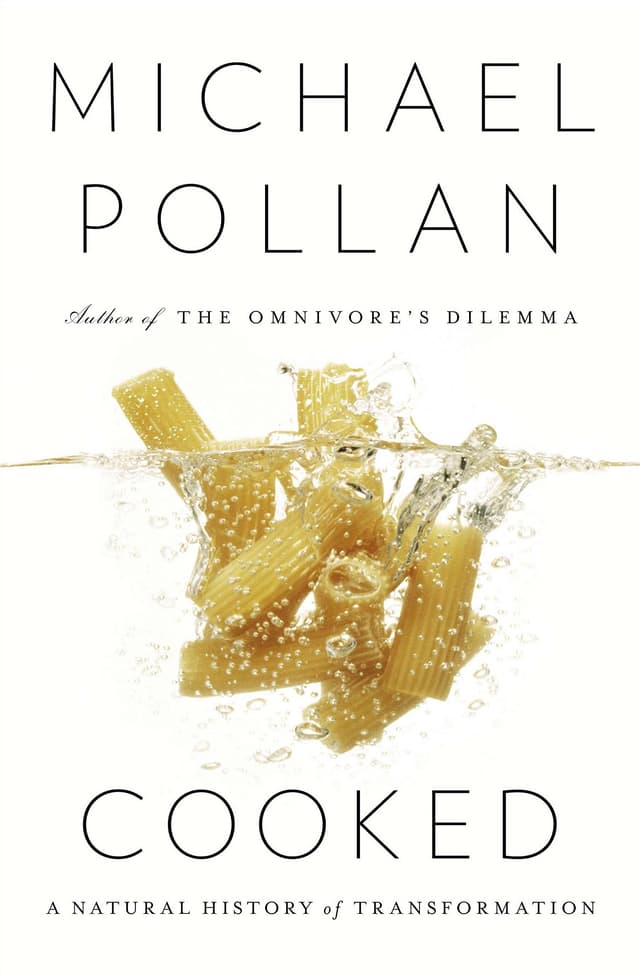
Book Review Summary: Cooked: A Natural History of Transformation
Introduction
"Cooked: A Natural History of Transformation" by Michael Pollan is a captivating exploration of the transformative power of the four classical elements - fire, water, air, and earth - in shaping the food we eat. In this book, Pollan takes readers on a journey through his own kitchen, discovering the magic of cooking and its connection to nature and culture. Through the lens of four key recipes, Pollan delves into the art of cooking and reveals the profound impact it has on our lives.
About Michael Pollan
Michael Pollan is an American author, journalist, activist, and professor of journalism at the University of California, Berkeley. He is known for his in-depth explorations of food and its relationship with society, culture, and the environment. Pollan's work has been widely acclaimed for its insightful analysis and engaging storytelling.
Analysis of Views
-
Transformative Power of Cooking: Many readers praised the book for its exploration of the transformative power of cooking. They found that Pollan's journey through the four elements revealed the magic and alchemy of turning raw ingredients into delicious food. The book inspired readers to think about cooking as a form of transformation, both on a personal level and on a larger scale.
-
Engaging Storytelling: Pollan's ability to weave engaging stories throughout the book was highly appreciated by readers. They found his personal anecdotes and experiences to be relatable and enjoyable, making the book more accessible and entertaining. The storytelling style added depth and richness to the exploration of cooking and its impact on our lives.
-
Insightful Analysis: The book was also commended for its insightful analysis of the connections between cooking, nature, culture, and society. Readers appreciated Pollan's ability to delve into complex subjects, such as the history of food politics, the role of fermentation in health, and the importance of self-reliance in food production. The book provided a thought-provoking perspective on food and its role in our lives.
-
Practical Tips: Some readers appreciated the practical tips and techniques shared by Pollan throughout the book. They found his guidance on cooking techniques, such as braising and baking bread, to be valuable and informative. The book offered readers a chance to learn from a master chef while also exploring the deeper meaning of cooking.
Reasons for Recommendation
-
Transformative Experience: The book offers a transformative experience for readers who are interested in exploring the power of cooking. Through Pollan's journey, readers can discover the magic of transforming raw ingredients into delicious food and gain insights into the cultural and social significance of cooking.
-
Engaging Storytelling: Pollan's engaging storytelling style makes the book accessible and enjoyable for readers who appreciate a well-crafted narrative. His personal anecdotes and experiences add depth and authenticity to the exploration of cooking and its impact on our lives.
-
Insightful Analysis: The book provides a thought-provoking analysis of the connections between cooking, nature, culture, and society. Readers who are interested in understanding the complexities of food production and consumption will find value in Pollan's insights and perspectives.
-
Practical Tips: For those who are interested in learning about cooking techniques, "Cooked" offers practical tips and guidance from a master chef. The book provides valuable information on cooking methods, ingredients, and recipes, making it a valuable resource for aspiring cooks and home chefs alike.
Reasons for Not Recommendation
-
Repetitive: Some readers found the book repetitive, particularly in the sections focused on air and earth. They felt that Pollan spent too much time discussing similar topics or exploring similar techniques without providing enough new insights or perspectives. This repetition detracted from the overall reading experience for some readers.
-
Limited Scope: A few readers felt that the book had a limited scope in terms of exploring different cuisines or cultures beyond Pollan's personal experiences. They wished that Pollan had delved deeper into other culinary traditions or showcased a more diverse range of recipes to provide readers with a broader understanding of cooking around the world.
Conclusion
"Cooked: A Natural History of Transformation" by Michael Pollan is a captivating exploration of the transformative power of cooking and its connection to nature, culture, and society. Through his personal journey through the four classical elements, Pollan reveals the magic of cooking and provides readers with valuable insights into the impact it has on our lives. The book's engaging storytelling style, insightful analysis, practical tips, and transformative experience make it a highly recommended read for those interested in food, cooking, and their relationship with the world around us. However, some readers found it repetitive or felt that it had a limited scope in terms of exploring different culinary traditions. Overall, "Cooked" offers a thought-provoking perspective on food and its role in shaping our lives.